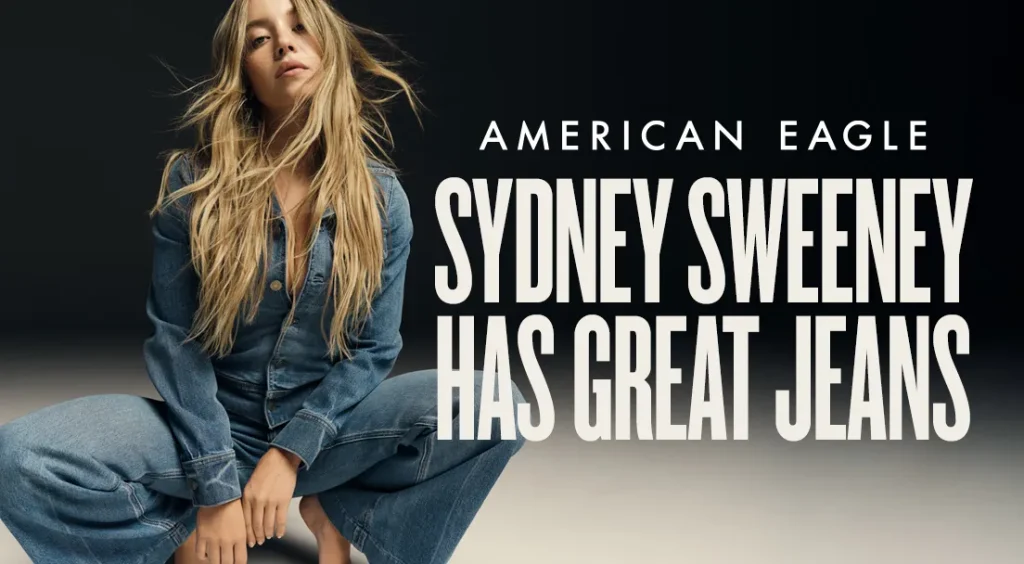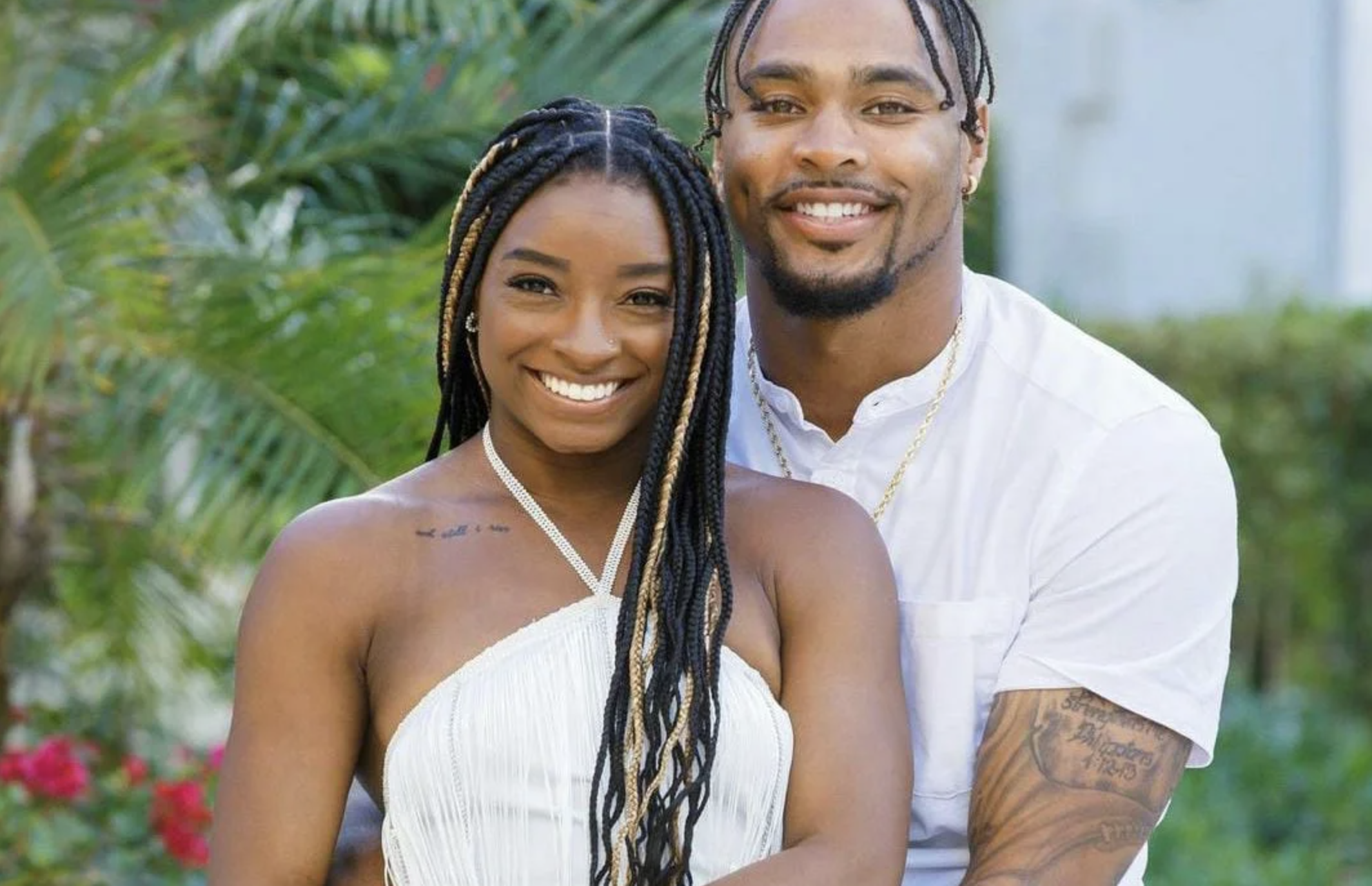Sydney Sweeney under fire as American Eagle ad ignites ‘racist’ backlash and major controversy.

Sydney Sweeney is catching major heat over her new American Eagle campaign, sparking heated conversations about race, marketing, and accountability.
The 27-year-old Euphoria star fronts the brand’s fall denim line with the tagline “Sydney Sweeney has great jeans,” a wordplay on “great genes.”
In one viral clip, “genes” is crossed out and replaced with “jeans,” while another video shows Sweeney explaining how genes shape traits like hair and eye color before quipping, “My jeans are blue.”
Requests for comment have been made to Sweeney’s team and American Eagle, but neither has responded.
Crisis PR expert Eric Schiffer has warned that Sweeney’s silence could be a risky move as backlash continues to mount.
‘Sydney’s mute button is a toxic time‑bomb with some people on the left – every hour of hush hurls her wholesome brand deeper into racial quicksand,’ the CEO of Reputation Management Consultants claimed.
He warned that failing to speak out ‘will be seen as a brutal insult to many shoppers on the left.’
“Sydney’s silence is a ticking time bomb for some on the left—every hour she stays quiet drags her wholesome image further into controversy,” said the CEO of Reputation Management Consultants.
He cautioned that not addressing the issue could be viewed as “a harsh insult to many left-leaning shoppers.”
Schiffer added, “Sydney’s silence could come across as ruthless privilege to those who are offended, giving critics more room to attack.”
However, he noted that the response might be perceived differently by conservative audiences.
“For conservatives, her refusal to apologize would be seen as a bold power move, not a sign of weakness—silence acts as a strong shield against attempts to twist the narrative,” he explained.
The campaign is still featured on American Eagle’s website, where Sweeney is praised for her “girl-next-door charm” and “main character energy.”
But many observers believe charm alone won’t defuse what’s become a PR minefield.
Las Vegas-based publicist Alexandria Hurley suggested the move wasn’t accidental, saying, “This isn’t a PR blunder—it’s a calculated brand shift. Assuming this ad just slipped through underestimates both Sydney and her team.”
Hurley noted that Sweeney has embraced controversy before, from her SNL Hooters skit to her Bathwater Bliss collab with Dr. Squatch, often doubling down rather than backtracking.
She added that the “Great Genes” tagline was “intentionally provocative,” and while the billboard was visually altered with Sweeney painting over it, the change “feels performative without any direct acknowledgment of the criticism.”
When asked if silence is damaging Sweeney, Hurley replied, “Not necessarily—it’s not the silence, it’s the intent. This is about attention, not respectability. She’s leaning into a polarizing, headline-grabbing persona—and for now, it’s working. People are talking, and brands chasing reach over responsibility will still show up. That’s the gamble.”
Jonathon Narvey, CEO of Mind Meld PR Inc., shared a similar view, suggesting American Eagle may have anticipated this buzz: “The ad itself isn’t particularly controversial—it’s mildly funny, and Sydney Sweeney is a big name. On its own, it might’ve been a ‘meh’ moment. But the internet thrives on controversy, and they likely saw this reaction coming.”
Christina Kroll, founder of Kroll PR, highlighted the heightened risks in fashion marketing today: “In a hyper-aware media climate, where every word is dissected, simplicity can backfire. Campaigns like this need experienced professionals who understand nuance and cultural context.”
Grayce McCormick, founder of Lightfinder Public Relations and a crisis strategist, warned that staying silent can be risky: “Directly addressing the backlash would humanize her, show that she’s listening, and set an example of accountability for her young, diverse audience.”
Toni Ferrara, founder and CEO of Ferrara Media, downplayed the need for an immediate public apology.
“Not every controversy calls for a Notes app statement. Sydney isn’t a politician—she’s modeling denim. Her silence isn’t necessarily harmful; in cases where the controversy stems from the brand’s creative direction, it’s often smarter to let the brand take the lead,” Ferrara explained.
Alexandria Hammond, Principal at BrandNEWS PR Consulting Firm, offered a different take on accountability: “This is 75% on American Eagle and 25% on Sydney. Major brands need diverse decision-makers to avoid these situations. The only reason this is making headlines is because of the big-name brand and celebrity involved. Sydney had the platform to challenge the message, but by signing on, she essentially endorsed it.”
Hammond added, “Sydney needs to recognize her privilege as a white woman in this scenario. She can’t fully shift blame to American Eagle when she actively participated. By agreeing to the campaign, she signaled that—for the right price—she was willing to overlook the values of her young, diverse fan base. In short, she sold out.”
Celebrity publicist Sarah Anne Schmidt offered a more balanced perspective on how Sweeney should proceed.
“Unless Sydney had a strong hand in shaping the messaging, it’s likely that the final tagline came from the brand’s creative team or agency. The backlash is largely aimed at the wording, not the visuals or other elements where talent typically has input,” Schmidt explained.
She stressed that timing is crucial since “silence creates a vacuum,” adding, “Trust is built on speed, honesty, and authenticity. A response should ultimately come from Sydney, but depending on her contract, she may need to wait until she and the brand agree on a unified approach. When she does speak, it should be empathetic and straightforward—not defensive.”
Publicist Courtney Haywood also stressed the need for Sweeney to take direct responsibility.
“Right now, silence is definitely not golden. Staying quiet doesn’t mean you’re neutral—it comes across as indifferent,” she said. “In today’s climate, where audiences are hyper-aware and outspoken, delaying a response only makes things worse.”
Haywood encouraged Sweeney to “own the moment” rather than “hide behind legal or brand language,” adding, “Acknowledge how it was received, thank those who raised concerns, and commit to learning from it. That’s what builds real credibility—not perfection.”
As backlash over American Eagle’s campaign grows, all eyes are on Sweeney’s next move. Whether she speaks out or stays silent, the controversy highlights the complex challenge celebrities and brands face navigating cultural sensitivity in today’s politically charged, always-connected world.


